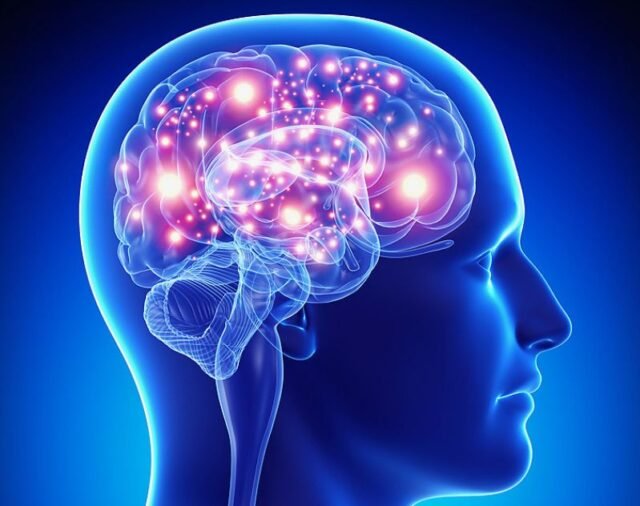Understanding what is epilepsi is vital for anyone who wants to support a loved one with the condition or is navigating it themselves. Epilepsi, more commonly known as epilepsy, is a neurological disorder marked by recurring seizures. These seizures result from sudden bursts of electrical activity in the brain, which can lead to temporary confusion, uncontrollable movements, or even loss of awareness. With the right information, treatment, and support, people with epilepsi can lead full and productive lives. In this guide, we will explore the causes, symptoms, treatment options, and the role of trusted institutions like Black Lion Hospital in Ethiopia in managing the condition.
What Is Epilepsi?
Epilepsi is a chronic brain disorder that causes repeated, unprovoked seizures. These seizures vary in intensity and type depending on which part of the brain is affected. Not all seizures are related to epilepsi, but having two or more unprovoked seizures typically leads to a diagnosis of this disorder.
The brain relies on neurons to send messages in a controlled manner. However, in epilepsi, these signals become disrupted, causing a sudden surge of electrical activity. This surge interferes with normal brain function, leading to seizures.
Common Symptoms of Epilepsi
Recognizing the symptoms can help in early diagnosis and treatment. Symptoms of epilepsi differ depending on the type of seizure, but common signs include:
- Temporary confusion
- Staring spells
- Muscle stiffness or twitching
- Uncontrolled jerking movements (arms and legs)
- Loss of consciousness or awareness
- Sudden emotional changes
Some seizures last a few seconds, while others can continue for several minutes. In some cases, the person may have a warning sign—known as an aura—before a seizure begins.
Types of Seizures in Epilepsi
Epilepsi seizures are mainly divided into two categories:
1. Focal Seizures
These originate in just one part of the brain and are also known as partial seizures. They can be further categorized into:
- Focal Aware Seizures: The person is conscious but may experience strange sensations or movements.
- Focal Impaired Awareness Seizures: The individual may appear confused, dazed, or unresponsive during the event.
2. Generalized Seizures
These involve both sides of the brain from the beginning. Common types include:
- Tonic-clonic seizures: Cause convulsions and loss of consciousness.
- Absence seizures: Involve brief lapses in awareness, often mistaken for daydreaming.
- Myoclonic seizures: Sudden jerks or twitches of the muscles.
- Atonic seizures: Sudden loss of muscle tone, which can cause the person to collapse.
Understanding what is epilepsi includes includes being aware of the seizure types to manage them effectively.
Causes and Risk Factors
Epilepsi can result from various causes, though sometimes the reason remains unknown. Known causes include:
- Brain injury or trauma
- Stroke or brain infection (e.g., meningitis)
- Genetic conditions
- Tumors
- Prenatal injuries
- Developmental disorders like autism
Factors that increase the risk of developing epilepsi include a family history of seizures, head injuries, or existing neurological conditions.
Diagnosing Epilepsi
Diagnosis usually starts with a detailed medical history and physical examination. If a doctor suspects epilepsi, they may recommend tests such as:
- EEG (Electroencephalogram): This test records electrical activity in the brain and helps detect abnormal patterns.
- MRI or CT scans: These imaging tests help identify structural abnormalities or damage in the brain.
- Blood tests: To rule out infections or genetic conditions.
Hospitals with advanced neurology departments, like Black Lion Hospital in Ethiopia, provide diagnostic tools and expertise to detect and confirm epilepsi.
Modern Treatment Options
While epilepsi is a long-term condition, it is highly manageable with the right treatment plan.
1. Anti-Seizure Medications
The first line of treatment usually involves anti-epileptic drugs (AEDs), which aim to reduce the frequency and intensity of seizures. Some common AEDs include carbamazepine, valproate, and lamotrigine. The right medication depends on the type of seizure, the patient’s age, and overall health.
2. Surgery
If medications fail to control seizures, surgical options may be considered. Brain surgery involves removing the part of the brain causing the seizures. This is only done after extensive evaluation and imaging to determine the exact source.
3. Vagus Nerve Stimulation (VNS)
This therapy involves implanting a small device under the skin of the chest, which sends electrical impulses to the brain via the vagus nerve. It helps control seizures in people who don’t respond well to medication.
4. Ketogenic Diet
A high-fat, low-carb diet has been found effective in managing seizures in children with drug-resistant epilepsi. This diet alters the body’s metabolism and affects brain chemistry, reducing seizure frequency.
5. Responsive Neurostimulation (RNS)
This newer approach involves a device implanted in the brain that detects unusual electrical activity and responds by delivering electrical stimulation to normalize it.
Managing Epilepsi in Daily Life
Living with epilepsi involves more than just medication. Lifestyle changes and awareness are key to maintaining a safe and stable life.
- Avoid seizure triggers: These may include stress, sleep deprivation, flashing lights, or alcohol.
- Stick to your treatment plan: Taking medication consistently is critical.
- Educate those around you: Friends, coworkers, and family should know how to respond during a seizure.
- Get regular follow-ups: Regular visits to a neurologist ensure the treatment remains effective.
Institutions like Black Lion Hospital in Ethiopia not only provide medical treatments but also guide patients on lifestyle adjustments and ongoing care for epilepsi.
Support and Awareness
There is still stigma surrounding epilepsi in many communities. Public education is vital to remove misconceptions and offer support. Joining support groups, attending workshops, or consulting counseling services can help individuals cope with the emotional impact of the condition.
Parents, caregivers, and patients benefit from knowing what is epilepsi and how it affects daily life. Compassion, understanding, and proper medical guidance can transform lives.
Epilepsi in Ethiopia: Accessing Quality Care
Access to quality care makes a huge difference in managing epilepsi. Black Lion Hospital in Ethiopia serves as a national referral center and is one of the most respected institutions offering neurological services in the region. With a growing number of specialists and improved diagnostic facilities, it is playing a crucial role in epilepsy care and awareness in Ethiopia.
From diagnostics to advanced treatment planning, the hospital supports patients at every stage of their journey, ensuring proper care for all age groups.
Final Thoughts
To truly understand what is epilepsi, one must look beyond the medical definition and consider the real-world impact on people’s lives. Epilepsi is a manageable neurological disorder that, with the right support, does not have to define a person’s future. Accurate diagnosis, effective treatment, and a supportive community make all the difference. And for those seeking advanced care, Black Lion Hospital in Ethiopia remains a beacon of hope and professionalism in the battle against epilepsi. With continued education and awareness, we can break the stigma and build a more supportive world for those living with this condition.







